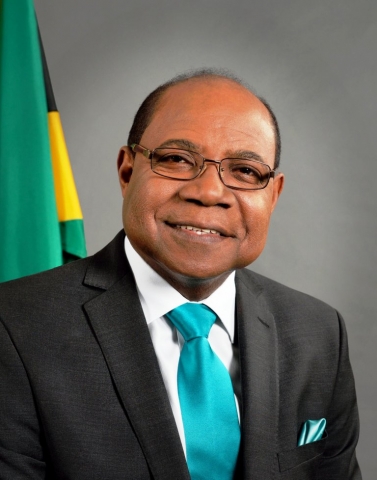Jamaica’s Minister of Tourism, Hon. Edmund Bartlett, says the Caribbean’s speedy post-COVID-19 tourism recovery is a result of an inclusive “all on board” approach, which sees the region enjoying record numbers in both arrivals and earnings.
Delivering the main address at the Caribbean Association of Insurance and Financial Advisors (CARAIFA) 34th Annual Sales Congress and Hall of Fame Induction Ceremony at the Hilton Rose Hall Hotel, Montego Bay, St. James, on May 14, Mr. Bartlett said that if the COVID-19 pandemic has taught anything to regional countries and stakeholders, it is that the days of the do-it-alone approach are long gone.
Underscoring the rapid state of recovery, the Minister pointed to a Caribbean Tourism Organization (CTO) report that showed the Caribbean accounted for 3.1 per cent of all arrivals worldwide, with 28.3 million registered visits in 2022, representing 52.4 per cent more than the tourists in 2021.
In addition, hotel occupancy increased to 60.7 per cent in 2022 from 44.4 per cent in 2021, while global visitors to the Caribbean region spent between $36.5 billion and $37.5 billion in 2022, an increase of 70 to 75 per cent, compared with 2021, Mr. Bartlett further pointed out.
“This magnificent rebound was not by accident. The recovery framework that we put in place was strategic, coordinated and carefully planned and managed. I strongly believe that the collaborative effort between the governments and key stakeholders from the Caribbean’s tourism industry in creating and implementing a recovery roadmap has enabled us to emerge stronger on the other side of the COVID-19 pandemic,” the Minister argued.
“It is a resilience framework that will serve us well in the future because Caribbean countries are particularly vulnerable to exogenous shocks beyond pandemics. Let us not forget the events of 2017, which saw a record-setting season for natural disasters in the form of hurricanes in terms of the number, severity, and financial costs. Category five hurricanes Irma and Maria, two of the most intense and destructive storms in recent history, left a trail of destruction across the Caribbean from Barbuda to Cuba,” he added.
Mr. Bartlett reminded that in the aftermath of the two hurricanes, some 200 people lost their lives on 12 islands and more than one million people were affected.
He added that economic losses exceeded $100 billion, with gross domestic product (GDP) losses ranging from 10 per cent to 224 per cent, noting that a World, Travel & Tourism Council (WTTC) industry study stated that the 2017 hurricane season resulted in an estimated loss of 826,100 visitors to the Caribbean, compared to pre-hurricane forecasts, which could have generated US$741 million and sustained more than 11,000 jobs.
“And now our focus is back on climate change, global warming and the Ukraine war; and there will be many other natural and man-made disasters that we will have to navigate in the future. All threaten the tourism industry’s potential to grow, generate jobs, and compete,” he said.
“Most importantly, the pandemic has provided us with the opportunity to redefine national and regional tourism industries, especially considering the sector’s importance in driving post-pandemic economic recovery in the region’s tourism-dependent economies,” the Minister added.
Mr. Bartlett emphasized that the focus now must be on crafting a framework that is more resilient, sustainable, and equitable, one that prioritizes inclusive sustainable economic growth and job creation, human capital development, and social and environmental protection; a framework where every Caribbean national benefits from tourism’s success.
The CARAIFA conference was held under the theme ‘Resilience – Rising above Challenges’.










